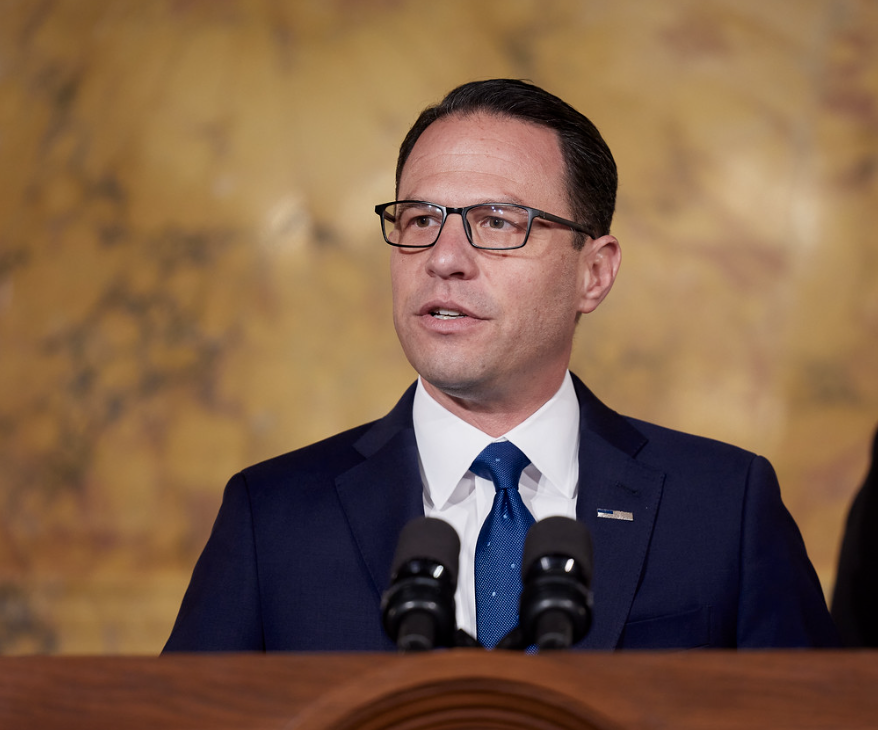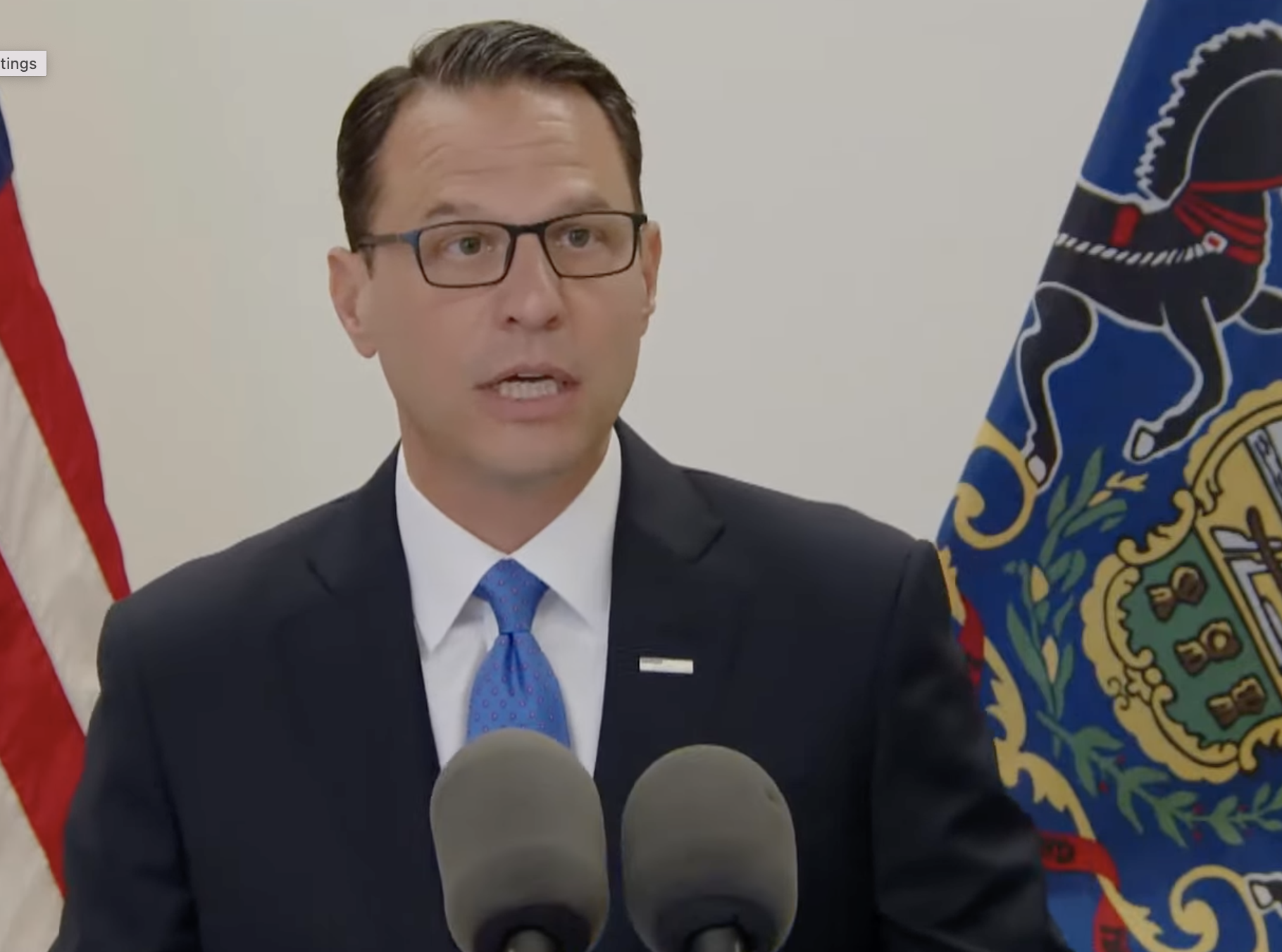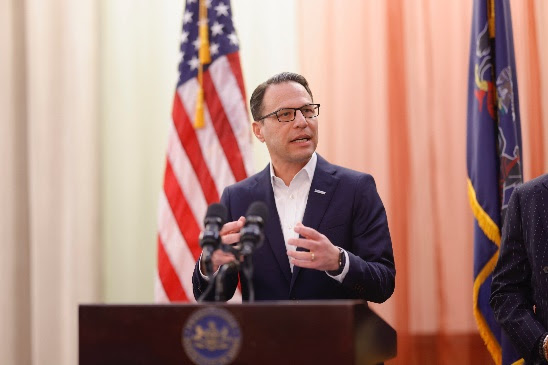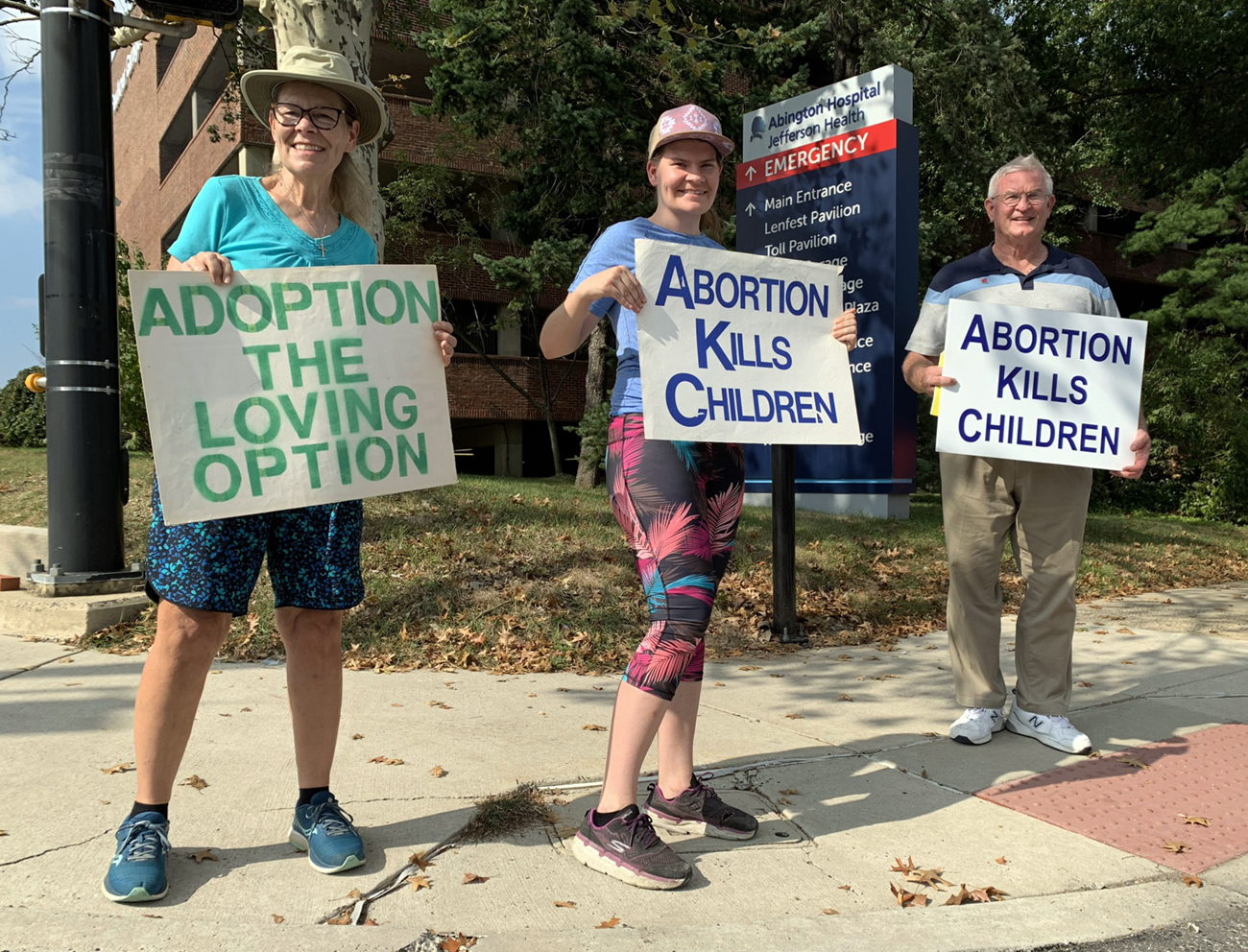House GOP Calls Out Dem Disarray, Question Shapiro Over Ongoing Vereb Scandal

After a contentious, late-night session on Wednesday dominated by Democratic political maneuvering, House Republicans held a press conference Thursday to denounce the political disarray.
“You don’t come to the floor as the majority leader and only get 27 votes for a bill,” said Minority Leader Rep. Bryan Cutler (R-Lancaster). “You don’t come to the floor simply to fail. And yet that is what we watched.”
Cutler went down a laundry list of complaints against Democrats, accusing them of shutting down debate four times, refusing to answer questions on bills almost two dozen times, and tabling bills en masse more than 30 times during the current session. “You’ve got 140 Republican amendments and counting that have been ruled out of order. The floor is being run in a way to shut off debate, to silence voices, offering midnight amendments, and it’s lacking transparency.”
“The Democrats own this chaos,” Cutler added before pivoting to the state’s budget impasse. “I was promised [by Democratic leadership] that we would have the budget and all the implementing bills…It is 97 days later, and we are still waiting. This is a failure of leadership… It’s a failure to sit down and discuss issues…with the other chamber and the governor.”
Speaker Joanna McClinton and Democratic Leader Matthew Bradford were castigated for refusing the deal reached between Democratic Gov. Josh Shapiro and the Republican-controlled Senate on school vouchers. “They may be able to say they (sent a) series of bills to the other chamber,” Cutler said. “The majority has yet to learn the majority about passing bills…and governing, which is working with all parties involved.”
Shapiro ended up vetoing the voucher program but has said that he wants it to eventually become law.
House Republicans see the bills passed this week along party lines as the Democrats not being interested in solving problems or being productive.
The House had a late night Wednesday. The Appropriations Committee worked past midnight on election code and budget bills. That included adding university funding as an amendment, slipping past the typical two-thirds majority needed for higher education funding legislation. It is unknown if the Senate or the governor will go along with the spending and election pacts.
That, Cutler swore, wouldn’t have happened if he had been running the chamber. “I know that our members wish that I was running the calendar again because we didn’t go to the floor to fail. And I’m beginning to think some [Democrats] wish I was the majority leader again,” he quipped.
State Rep. Tim O’Neal (R-Washington) later suggested Shapiro’s office used taxpayer money to pay off a woman who accused a now-former aide of sexual harassment.
“We learned of the same issue out of Gov. Shapiro’s own administration,” said O’Neal on Thursday. “With another sexual assault cover-up from one of his cabinet officials where taxpayer dollars were used to pay off the victim.”
O’Neal did not offer any evidence to confirm the allegation.
A House GOP staffer cited a Broad + Liberty article on Mike Vereb’s resignation last month. That piece only said that it was “not yet known if the claim has resulted in any kind of settlement.”
Vereb, who has a long political relationship with Shapiro, had been the governor’s secretary of legislative affairs. He was accused by a female former deputy secretary of unwanted sexual conversations earlier this year. The complaint suggests Vereb made statements about what the woman wore and told her to wear sexier clothing.
Shapiro, who may have eyes on the White House, won’t answer questions on what and when he knew about the Vereb accusations, and if the resignation was voluntary or forced.
“I can’t comment on any specifics, and that’s really designed to protect all parties involved in any matter,” he told reporters Thursday afternoon.
The governor then brushed the questions aside to talk about women in leadership. “Our administration is led by two women, strong women…and we work every day to make sure that we have a healthy, safe, professional work environment for all of our employees.”
House Republicans want the Democratic governor to be more open about whether a payoff happened. “What have we heard from the governor on that?” asked O’Neal rhetorically. “Nothing. Absolutely nothing.”
Those worries don’t seem to be bothering Senate Democrats.
“As a female state senator, we were able to sit and meet with Gov. Shapiro and his team,” said Sen. Lisa Boscola (D-Bethlehem Township) at the same event as Shapiro. “We came out of that very confident that he is handling that…He has two powerful women who know what they’re doing when it comes to personnel issues.
Senate Republicans still want to know more.
“The people of Pennsylvania trust us to work on their behalf as public officials with integrity, respect, and with the best interest of the people we serve at the top of our mind,” said Sen. Tracy Pennycuick (R-Montgomery). “When this trust is betrayed, the people deserve answers.”
Senate President Pro Tempore Kim Ward (R-Westmoreland) wants to know how Vereb’s resignation will affect other issues.
“Despite this being a personnel matter, the governor’s office has offered official comments and conflicting information on the issue. This not only raises concerns related to their workplace practices but also whether this matter has influenced our current unfinished budget situation and how taxpayer funds are supporting this issue,” said Ward.
Shapiro dismissed Ward’s criticism as not worthy of response.
“First off, I’d just say consider the source when it comes to the president pro tem,” the governor said. “We have an independent, robust process that is one where any employee should feel comfortable coming forward.”
Shapiro’s office did not answer an email on whether a settlement was offered or reached with Vereb’s accuser. The accuser’s attorney, Chuck Pascal, did not return a call asking a similar question.







